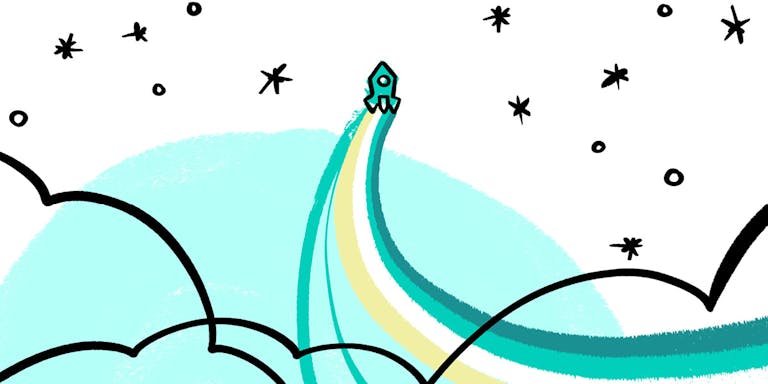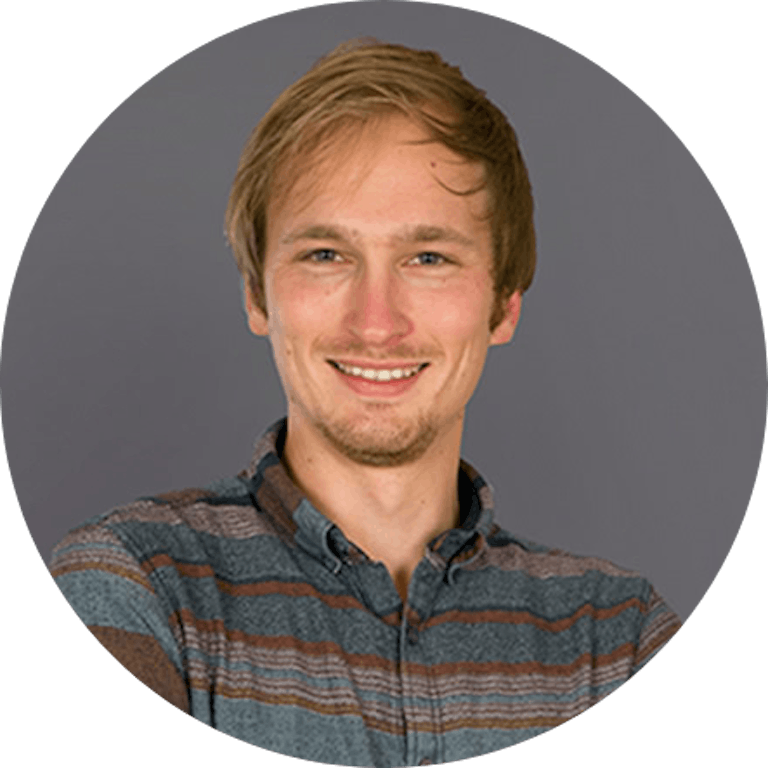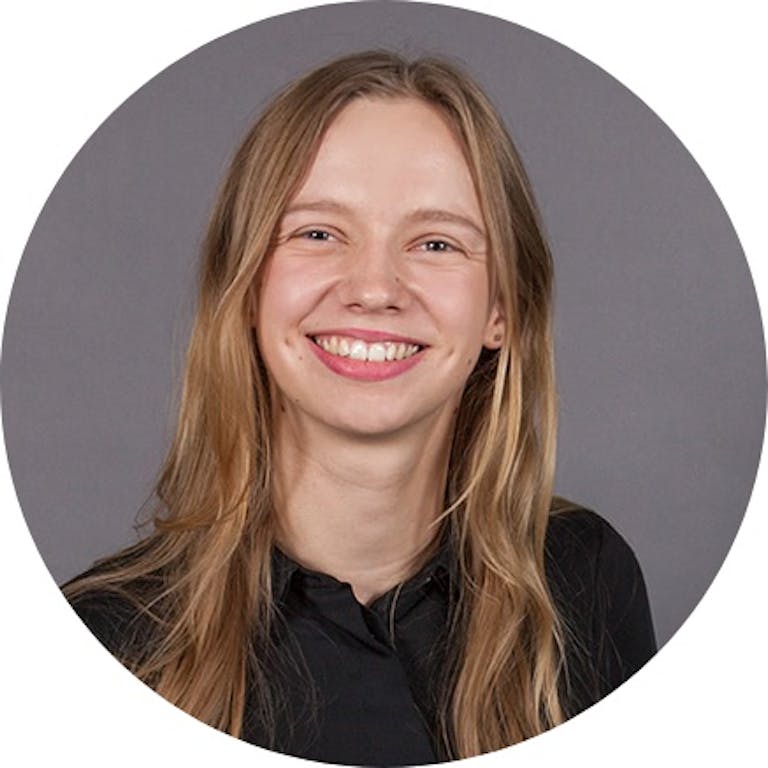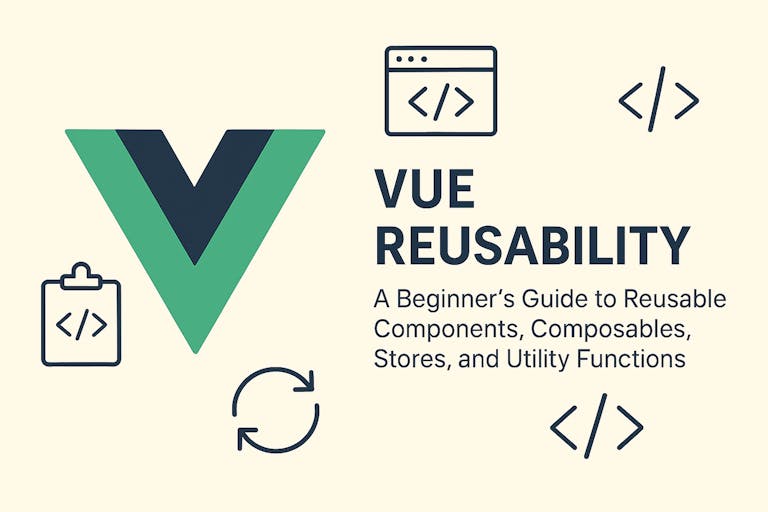
Peerigon is about the people

Leonhard

Irena
May 28, 2019
Peerigon started out as a small group of passionate web developers. However, in the last 7 years we have grown into a strong, colorful crew of more than 20 employees. It seems like only yesterday when everyone could easily fit in a selfie. Well, this is still possible - we simply need better selfie skills!
We are very happy with our progress. Besides great engineering talent each new hire adds something special to our team. Nevertheless, one of the main topics which crystalized from our strategy workshop a year ago has been the wish for more diversity and inclusion in our ranks.
The foundation for our team has been laid out with a focus on certain principles written down in the early stages of the company. In our Manifesto as well as in real life, first and foremost, "Peerigon is about the people".
In this article we want to recap our first steps to build a more diverse company culture to further embrace this principle. And what could be a better date to share this with you than today, 28th May 2019, the 7th German Diversity Day!
Our First Steps
How can we approach such a complex topic? Can diversity and inclusion ever be fully achieved? How do we ensure Peerigon becomes a more attractive workplace for every skilled candidate? And how can we stay the open-minded company we want to be? We sure had a lot of questions!
As with many of our efforts we decided to form a "Passion Group". This is the go-to instrument to bring change to our company. It works like this: first, we discover an important topic we want to work on. Then a group of two to four interested, passionate team members come together to discuss it. There are a few guiding questions for initial research: what is the problem, what are our ideas, what have others done and how could this help us. The group works out a proposal to present to the complete team and gathers feedback. After further refinement the proposal gets voted on and - if successful - implemented. We codify important points in our internal employee handbook to ensure no information is lost. It also becomes part of the onboarding for new hires from now on. Depending on the topic, those Passion Groups can be short-lived (e.g. do we want to sponsor event X?) or long-lived (meets regularly, e.g. Team Diversity).
The Mozilla Inclusion Conversations sparked some of our first discussions about diversity.
Our Passion Groups are no busy work or (only) coffee talk. Each group serves a purpose and we spend real working time to think, discuss and act. By dedicating our resources this way we emphasize the importance of the topic, both internally and externally.
One of the early discoveries in our Diversity Passion Group were the cards from the Mozilla Inclusion Conversations. Mozilla is well-known for its strong stance on inclusion:
Mozilla
This inspired us to do more and we quickly came up with a lot of different areas we wanted to investigate. Written down in a beautiful first draft we formulated our initial goals:
- Change our job posts to be more inclusive
- Increase & strengthen our support for female and inclusive tech events (Girls Day, Nodeschool, ...)
- Keep an eye on background of new applicants
- Clarify terms and language so we know our vocabulary
- Review marketing material such as the website to make sure it uses inclusive language
- Maintain a healthy growth of the company ('cause diversity is super healthy! 🌱)
As you can probably tell, these goals have implications on all areas of our company. Although we quickly realized some of our ideas were far fetched or not feasible (yet!) we made sure to write them down. It seemed important to have a guiding vision. Other ideas were already very specific so we started to create the first issues in our GitHub project board.
Ready to go! But wait...first we needed to understand the topic and its terms a bit better.
Diversity, Inclusion & Intersectionality
Let's take a look at these terms and what they mean.
We want to make every voice heard regardless of origin or life choices - frankly speaking (and we'll consult the Cambridge Dictionary here): Every person is affected by his or her intersectionality,
Definition of Intersectionality
This is the base on which we define our perception of diversity, too:
Definition of Diversity
It's easy to overlook your own intersectionality: no one is ever only female or male judging by the common stereotypes, everybody has some migration background - if not visible in your immediate family it sure is in your DNA. Our personalities are not binary. Our interests and tastes are different, thank God! Oh wait, thanks Flying Spaghetti Monster!? All this affects how we get treated and treat others. This impacts daily life but is no less important at the workplace where we interact with coworkers and clients. Software development is communication.
We think that our differences are what make a team great and drive us truly forward. Inclusion is what we see as the essential counterpart: including everyone equally as part of our team, because everyone will contribute to our mission 🙌.
This means Diversity and Inclusion together become the key in making our company successful. We believe this holds true for all companies although the definition of success certainly varies.
To really live up to our expectations and to make these thoughts become reality, we wanted ensure everyone feels invited to apply to our ever open job posts.
Team Extension and More Inclusive Job Posts
The important topic team extension is intertwined with many of the actions within our company. How can we address and encourage people from underrepresented groups more specifically? What would be concrete measures to enhance diversity and inclusion?
When our group first came together we were far off a balanced gender ratio for new (full-time) hires. At the same time we knew from our own experiences about the reality in todays university classrooms in Germany: roundabout 21% of software engineering graduates are women! Still a long way to go but they all must be working somewhere! It seems like we weren't a very attractive employer or we just weren't visible enough.
Note: We want to emphasize we do not want to reduce the topic of diversity to only gender (let alone binary gender) but it seemed like a good starting point for us and is a commonly discussed topic in Germany. There are many other diversity dimensions which are equally important.
Thankfully we live and work in a diverse city. Augsburg has a population of nearly 300.000 with 46% migration background. Both universities are very active and attract many international students as well as proudly present their IT programmes. This should make for a good starting point for a diverse job applicant funnel, right? For us the answer is a clear maybe.

Flyer of the Augsburg Diversity Day 2019. Source (PDF, page 2)
Thinking more about the topic we realized a few areas where we were already doing well:
- Evaluating Applicants: Every applicant should have fair chances and an equal opportunity. To ensure this, we always have two people present during initial conversations and trial days. We are making sure to always have two diverse (female/male or apprentice/senior etc.) team members handle the process. We aren't strictly looking for pattern X or technology Y when evaluating trial day projects because there is diversity in there, too.
- Internal Communication: Funnily enough, we started using English as the language for our communication on GitHub even before there were any non-German speakers. This is much more important now as we are happy to have two native English speakers as team members! Hi Antony and Tanner 👋! If it becomes too challenging to express a topic in English, it is alright to write in German, too. Someone will translate it or at least provide a summary. The same goes for our team meetings. This has served us well and we certainly improved our language skills along the way.
That being said, we also came to understand diversity isn't just some numeric goal we can chase and report on. Neither is it a checkbox we can tick off when evaluating a new job applicant. Instead our goal is to attract diversity in all shapes and colors by being present and open.
A first topic to act on right away was to look at the titles of our job offers. As most other companies in IT we are constantly looking for new skilled developers to strengthen our team. But do they feel welcomed when reading our job offers?
In our Passion Group we looked at the different variations of how to convey openness. Having to think about how it affects communication in both German and English didn't make things easier. After looking at 10 different variants and consulting Google Trends about their usage we proposed adding f/m/x (or m/w/x in German) to our job offers. The proposal was accepted by the team. We are now also using English job titles to avoid "gendering" in German, e.g. Software Developer instead of Softwareentwickler (which would only refer to a male). Being explicit here would not necessarily mean being inclusive. We are currently implementing the change in our different social media channels as well as on our website.
Duolingos' efforts to achieve a 50:50 gender ratio gave us some further ideas and motivation. For them going to events where underrepresented minorities were specifically invited helped to attract more such applicants. We are already attending and sponsoring local community events but we can do more in this area.
Work in the Community
What about reaching young people? What can we do now to encourage people with all backgrounds to apply to our jobs? How can we attract more talent to our field of work in general?
We want to motivate minorities to channel their talent and feel welcomed at the tech industry. To accomplish this we’ll join, host and will try to contribute in other possible ways to events, which we believe will bring change. Like the last two years, we’ll welcome several young girls for Girls’Day, where young women can peek into STEM jobs. This year alone we supported 6 motivated girls to build their first website in just a few hours. We hope, that on this day the girls can try out techy things and hopefully overcome the fear and prejudices about what they "can't do".
The same goes for our long-established hosting of Nodeschool in Augsburg and Munich. Previous code newbies and so called lateral entrants gave us the loveliest feedback when they told us that they found their way into software development because of this program. In addition to that, we found, that solely having two women in the role as organizers and mentors motivates shy attendees to show up - because they wouldn't be the odd one out within a programmers group. This showed us, that even the smallest steps can create great impact.

Irena working together with students during Nodeschool Augsburg in our office.
Sure, this all might not lead to great new candidates who apply at our company tomorrow but that doesn't matter. We are in this for the long run and are happy to take our responsibility in society seriously.
We like to connect and are frequent participants of meetups and conferences. But by making a more conscious choice of the events we want to attend we can broaden our view and be more present. Diversity Tickets is a very cool project in this area. We are looking forward to attend more diversity-friendly events this year.
Considering all of that we keep up to date with current voices on inclusiveness in our society by visiting talks, reading blogs and having open discussions. As of right now, looking at our female developers ratio we are doing quite good actually comparing to official numbers - but we want to do more, because an open-minded, welcoming culture is kind of an affair of the heart for us.
In Conclusion
Diversity for us will and always has been putting people first. We thought about extending our Manifesto to stress that we stand behind this and put a great deal of effort into our work there. However, being specific is not very inclusive, as we already said. So all we want to express is, that we at Peerigon try our best to be a colorful mélange of humans who share a passion for the web and software and - no less important - those who are looking after the devs.
We are still finding our way through this complex topic. Our diversity group meets once a month to coordinate and continue working on our efforts. We have a lot of ideas for discussions and initiatives which we are going to work on in the following months.
Our efforts are neither perfect nor finished. Instead we want to start a conversation both internally and externally. We embrace the changes required to become better and are looking forward to our road ahead.
Diversity is beautiful. 💗
This post is part of a new series on Company Culture at Peerigon. Look out for the introduction post coming soon and follow along on our journey. We would be very happy to hear about your ideas and experiences! You can reach out to us on @peerigon (simply Tweet or DM us) or hello@peerigon.com. Thank you!
Luckily the topic is getting talked about more and more each day - if you would like to read more, we're happy to share some sources with you which we weren't able to discuss in our small frame:
- Gender Balance is a Business Issue by WordPress
- #BalanceForBetter
Diversity
Manifesto
Corporate Culture
Team Spirit
Inclusion
Read also

Michael, 04/16/2025
Green Hosting: A Sustainability Comparison
Sustainability
Green Software
Consulting
Hostingsec

Lea, 04/04/2025
A Beginner's Guide to Reusability in Vue
Vue
JavaScript
Reusability
DRY Principle
Components

Francesca, Ricarda, 04/02/2025
Top 10 Mistakes to Avoid When Building a Digital Product
MVP development
UX/UI design
product vision
agile process
user engagement
product development